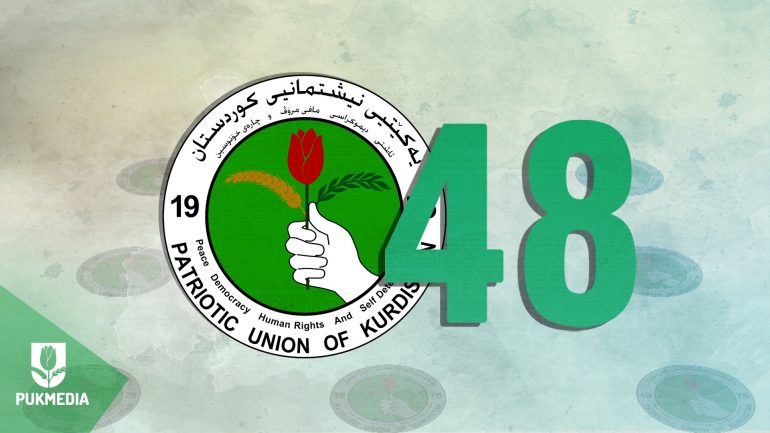Celebrating its 48th anniversary today, the Patriotic Union of Kurdistan (PUK) stands just two years shy of its golden jubilee. Once a symbol of resistance against a despotic regime and a breakaway faction protesting family rule, the party now seemingly embodies some of the traits it formerly resisted.
Making any comparison of Kurdish political parties—KDP, PUK, or PKK—with Saddam Hussein’s merciless regime is patently unfair. And the PUK’s Political Bureau released a statement today underlining this point. The statement solemnly commemorates the “thousands of PUK members who have died as martyrs” and their perseverance against grave odds, including the Anfal genocide, chemical attacks, deportations, and Arabization. It emphasizes the liberation uprising as a historic pinnacle of the party’s struggle.
Yet, the party seems to have undergone a transformation: from rebels and revolutionaries to oppressors upon gaining power. Under the PUK’s command, there have been numerous incidents of alleged abuse. The allegations against Kurdish authorities range from torture, suppression of internal dissent, arrests and killings of journalists, stifling of protests, restriction of press freedom, and rampant corruption, to disregard for the rule of law, mismanagement, and monopolization of the economy and security of the Kurdistan Region.
Historically, such a transformation is not uncommon. Revolutionaries gaining power and then turning into the oppressors they once rallied against is a recurring pattern. The allure of power and the fear of losing it often act as catalysts for this ironic shift. Fidel Castro’s Cuba and the post-1979 revolution Iran are notable examples.
Though the extent and form of oppression differ significantly in these examples, it’s plausible to conjecture that had the PUK governed an entire country, it might have followed a similar trajectory.
The PUK was born out of opposition to the KDP’s conservative, tribal political style. In 1975, Jalal Talabani, profoundly discontented with the Barzani family’s dominance over the KDP, established the PUK. The nascent party reenergized the Kurdish struggle, presenting a progressive alternative to the KDP’s family-focused politics. But, 48 years later, the irony is palpable. The PUK is currently managed by the Talabani family, led by the late Jalal Talabani’s eldest son, with his younger brother, Qubad Talabani, serving as the Deputy Prime Minister of the Kurdistan Regional Government (KRG).
Since Jalal Talabani fell ill in 2013, a struggle for power has left the party divided, weaker, and increasingly authoritarian. Bafel Talabani, engaged in a continuous purge of party ranks, has been reshuffling security officials loyal to the expelled co-leader and cousin, Lahur Jangi Talabany, to solidify his power despite Lahur Talabany’s popularity. Lahur Talabany, who received the most votes in the 2019 Leadership Council election and emerged as a party leader, was sidelined to preserve family power dynamics. This led to a now-defunct co-leadership system, with Bafel later ousting Lahur in an internal coup, accusing the latter of treason and an unlikely plot to poison him.
As the PUK approaches its 50-year mark, the politburo’s anniversary statement conceded that “the PUK has made significant progress, but more needs to be done.”
However, it fails to acknowledge the party’s growing authoritarianism and the dwindling enthusiasm for reform in recent years since Jalal Talabani’s son consolidated his grip on the party leadership.
Under Jalal Talabani, the party was never far from controversy but was generally viewed as a more moderate and tolerant party than the KDP. Sulaymaniyah, under PUK control, enjoyed far more freedom of speech and freedom to dissent than provinces under KDP control. However, incidents of abuse have escalated in Sulaymaniyah under the leadership of Bafel (who was reportedly exiled to London by his father while the senior Talabani was still in good health).
This point was underscored in Lahur Talabani’s recent return to frontline politics when he specifically singled out the increase in unexplained killings and breaches of free expression by the PUK leadership during his absence.


